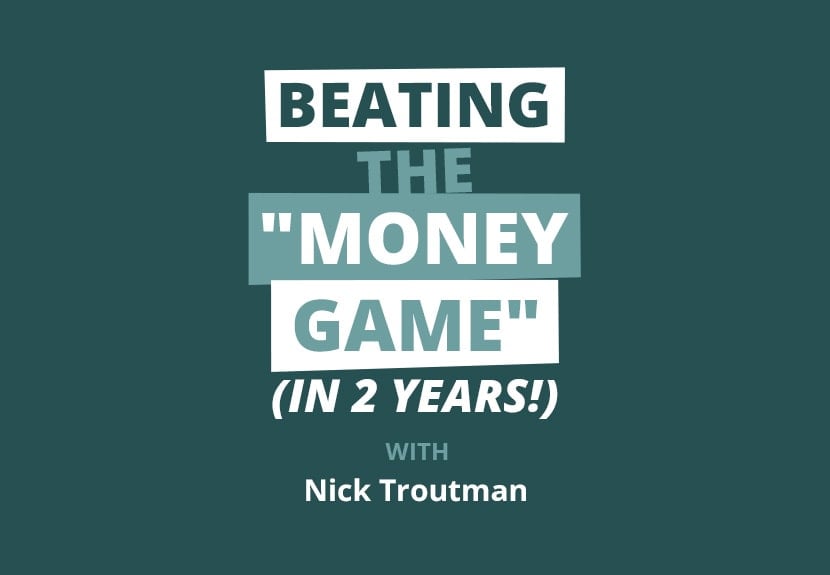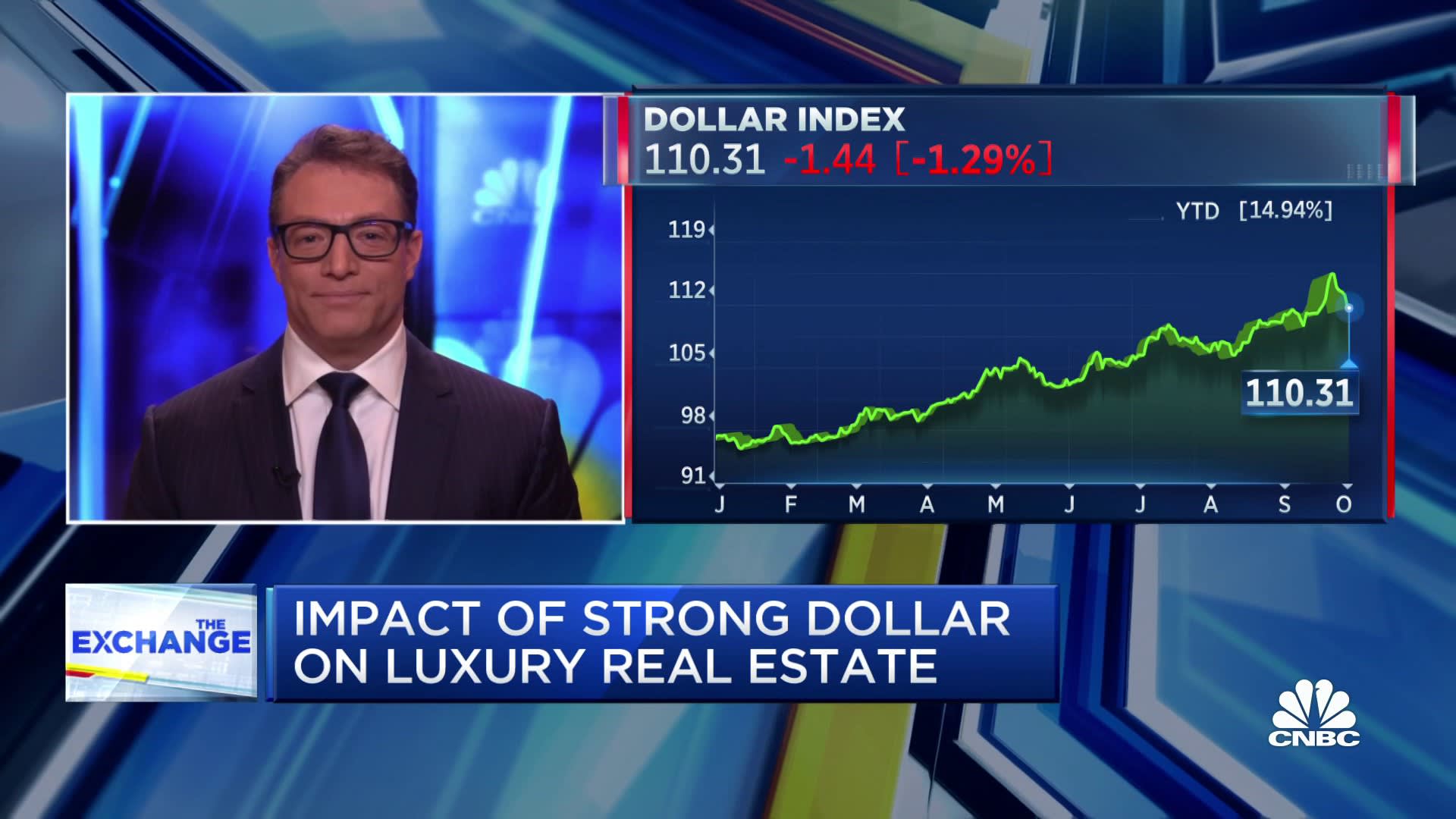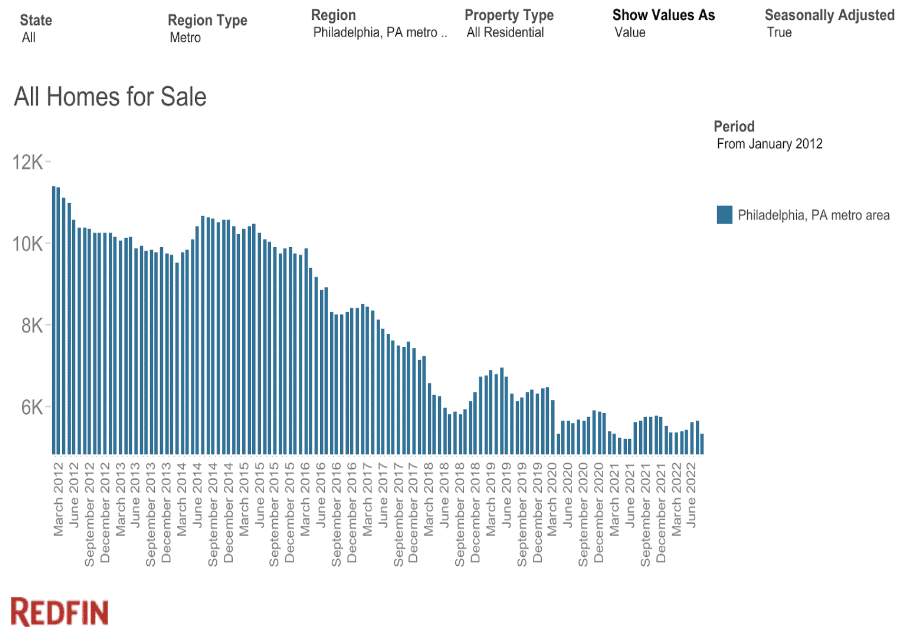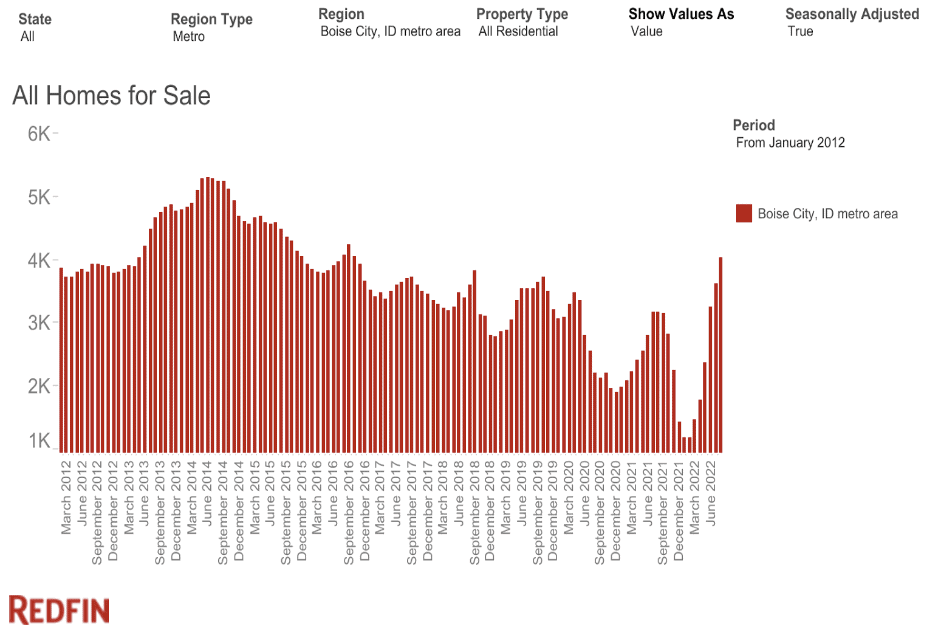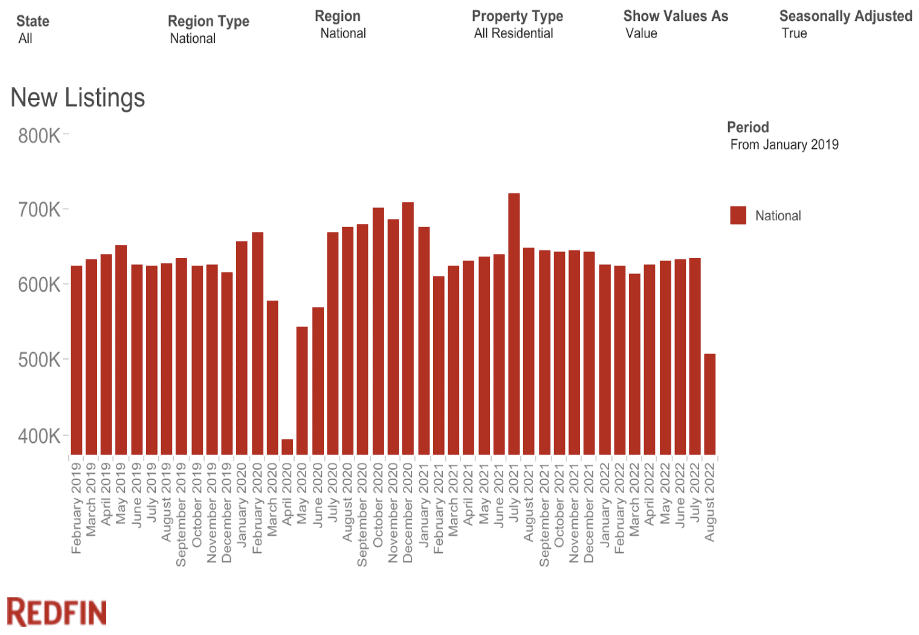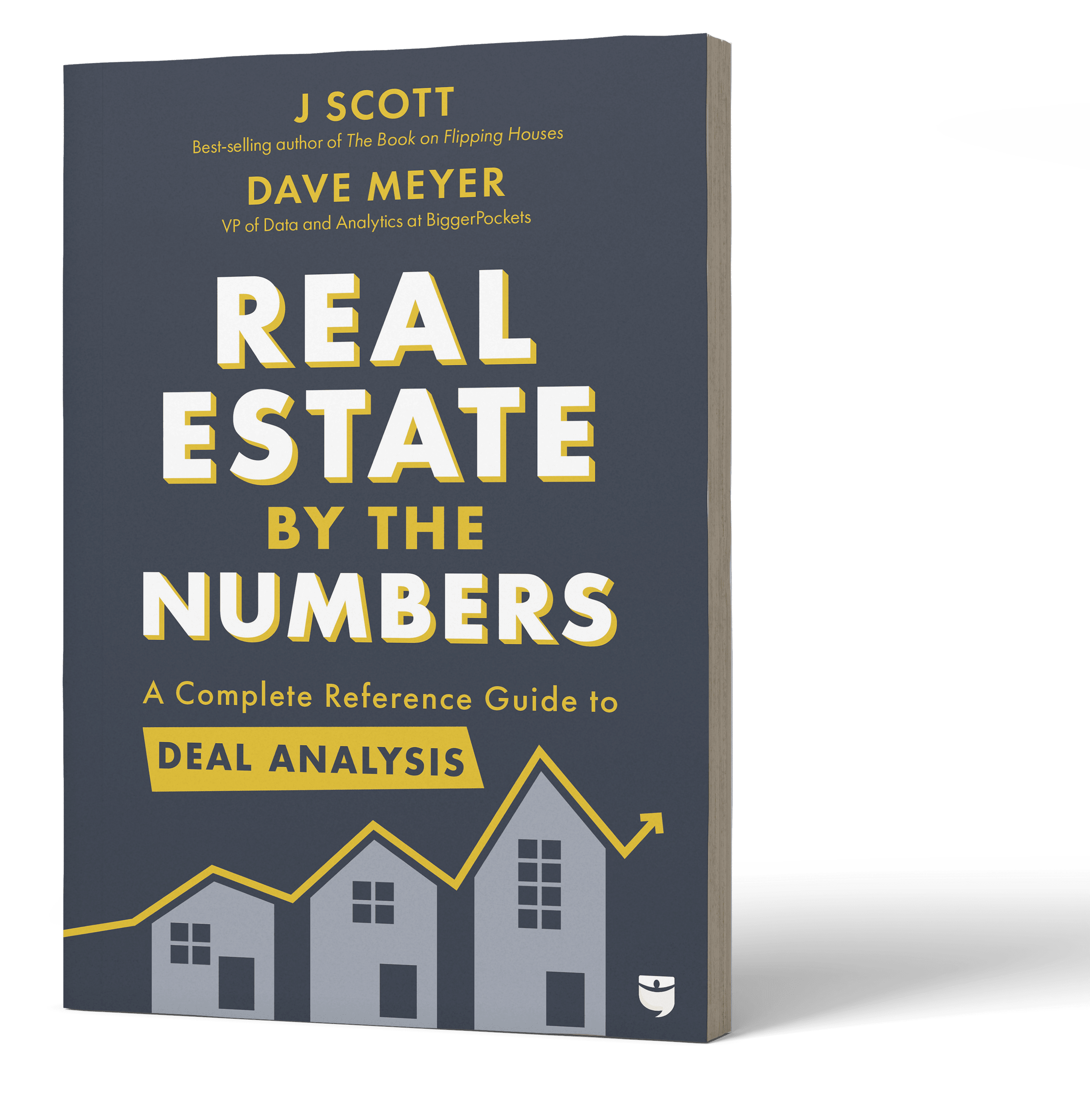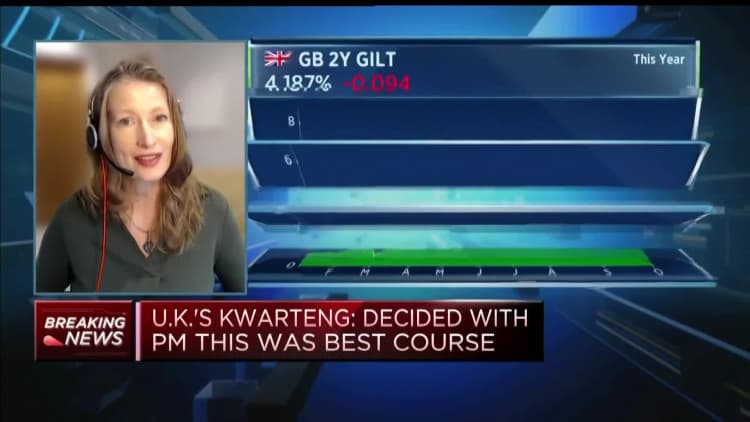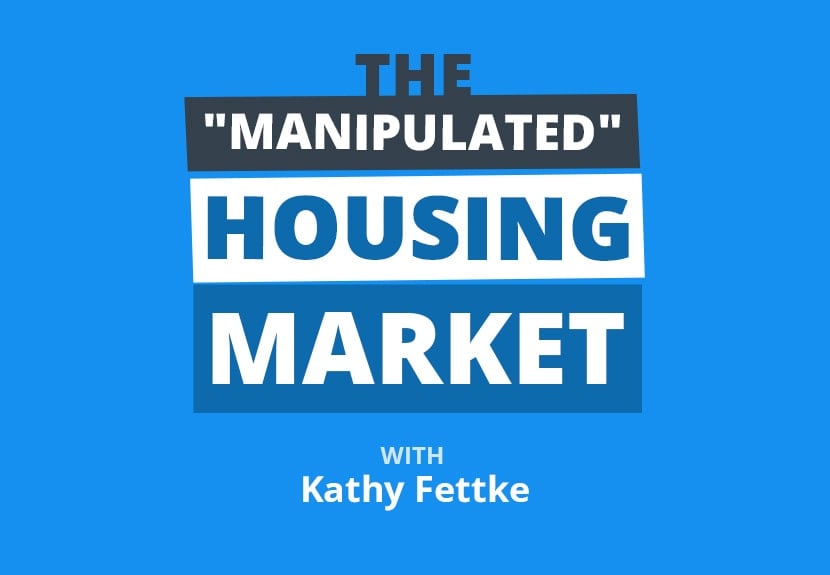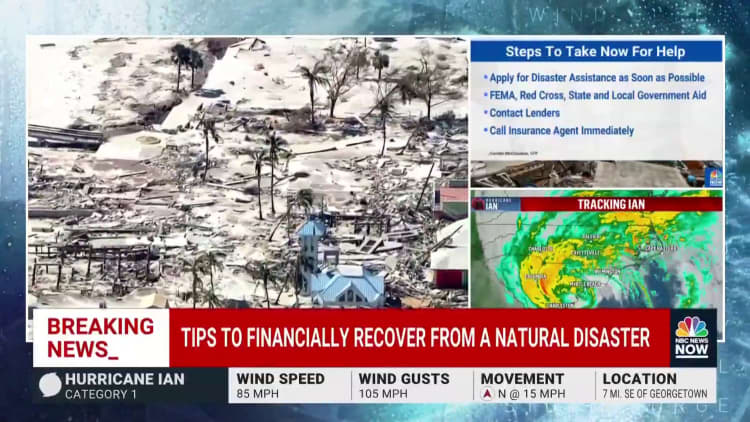Using Paternal Instincts to Close on 17 Units
If you pay attention, you’ll notice there is a game being played. The sooner you realize this, the sooner you can play to win. The game of life has various components, but the top one percent has mastered the game of money and finance. Once you start playing, your financial fear becomes irrelevant. After all, it is a game—and you’re supposed to have fun.
Today’s guest, Nick Troutman, started playing the game after his second child was born. His fatherly instinct kicked in, and he had a deep desire to provide. He started researching investing, money, and finance—his friend recommended BiggerPockets, and the rest was history. Now, Nick has four rental properties with seventeen units, including a nine-unit apartment.
As a professional athlete, Nick is on the road for six to ten months, which exposes him to various housing markets. This exposure helped him narrow down his scope of locations to invest in. Ultimately he decided to invest in Tennessee and Georgia. Nick’s open and optimistic approach to life has helped him create his dream life as a father, husband, professional athlete, and investor.
Ashley:
This is Real Estate Rookie, episode 223.
Nick:
I relate everything back to my world of kayaking and being an athlete. Through my decades of competing, I’ve just realized that you either, you win or you learn. Through loss, I try to use that as a learning experience. So I knew that I’m either going to figure this out and it’s going to be a great and a home run hit, because I was running the numbers and I was like this is either going to be too good to be true, or I’m going to learn from this experience and I’m going to keep taking those baby steps forward. So using that win or learn mentality instead of the win or lose. It got me into that first deal, which then got me into the second and the third and the fourth, and has kept me moving forward.
Ashley:
My name is Ashley Kehr, and I’m here with my co-host, Tony Robinson.
Tony:
Welcome to the Real Estate Rookie podcast, where every week, twice a week, we bring you the inspiration, information, motivation and education you need to kickstart your investing journey. Oftentimes, we like to start the podcast with some reviews from some wonderful people in the Real Estate Rookie community. This week’s review comes from, it’s actually a crazy username. I can’t even say it. It’s SP with 30 different numbers behind it.
But this person says, “I’ve been a listener of the BP podcast for years, but I find myself prioritizing this one throughout the week. I love getting insight into small-scale investors and I find it super relatable. I think the balance between Ashley’s and Tony’s strategy is an awesome learning experience. I’m so inspired by the stories. Even though I have a decent amount of knowledge, I still consider myself a newbie and I enjoy hearing from other people’s journeys.”
So we appreciate that. If you guys haven’t left an honest rating review on whatever platform you’re listening to, take the five minutes, do it. We really appreciate it. The more folks that we can reach from the podcast, the more folks we can help, and that is ultimately our goal here. So, Ashley Kehr, we just got back from hanging out in person, which we don’t get to do all that often.
Ashley:
I know. So if you guys listened to episode 217 with Evan and Katie Miller, we actually went out to Denver and got to interview them live, which was so much fun. My business partner Daryl came with me and on the way home, I fell asleep on the plane, took up two seats and everything. I was crawled up in the fetal position. He took a picture of me and he’s like, “Ashley after her BiggerPockets bender.”
But it was so much fun. Just three days, all real estate people. We had a meetup. Over 300 people came to the meetup. So make sure you guys are checking out our Instagram accounts and the BiggerPockets Instagram account to find out where we’re going next for our next meetup.
Tony:
It’s always so cool to get to meet people from the Rookie community. There were literally people that flew in just for the meetup, which was so unreal to me. It’s always so cool to get to meet folks. We had a wonderful, wonderful time. Like Ashley said, looking forward to being able to do it again soon. What else is new, Ash? What else you got going on?
Ashley:
I’m actually sitting in a new Airbnb that’s about to go live. It’s my second Airbnb arbitrage. I rented another unit within the same apartment complex. The bed just got delivered a couple days ago and I just need to get a couple chairs and a few odds and ends and the thing is ready to go. I actually had my mom set it all up for me. So today was my first time seeing it with everything put away in its place, and it looks great. I’m super excited. It’s just a one bedroom unit.
Then the other unit we have in the building already is a two bedroom. So it’ll be nice to have a good dynamic here. Plus, if you have people coming for a wedding or things like that, it’s nice that two families can rent out the units and be close together too.
Tony:
I love that. I’m excited for my invite out to Buffalo so I can critique your units in person and give you some feedback.
Ashley:
I would love that so much. Can you create a handbook and stuff like that too while you’re here?
Tony:
It’s actually been a pretty crazy week for us at our properties. One of our cabins is in the mountains of Tennessee, and we’ve been dealing with this mice issue. We’ve had multiple exterminators come out, but they can’t seem to find and catch these mice. The only time these mice show up is when there’s a guest at the property. So we’ve been refunding guests at this property.
We had another property, two of our tiny houses in Joshua Tree, the mini splits, the drains got clogged because there was flooding out there or something. I don’t even really know what the reason was. But the mini splits started dripping onto the wall and overnight, ruined two of our mattresses at two different properties because there was just this drip.
Anyway, I’m saying all this stuff to give you a heads up. Now that you’ve got two, the chances of you having weeks like mine are starting to increase. You’ve got issues going on at all these properties at the same time.
Ashley:
Daryl actually moved to one of our cabins. And so, he moved into it and I’m pretty sure it was the first night he was there, there was a mouse running across a beam. His son saw and it’s scooting across. And so, he’s like, “I don’t know what to do with this thing.” He’s like, “I don’t want to sleep here if there’s a mouse running around.” So he actually got his son’s BB gun and he shot it off of one of the rafters it was running on. I was like, amazing.
Tony:
No way.
Ashley:
I’m like, “I didn’t know you’re such a great shot. My God.” I’m sorry for anyone-
Tony:
Tell Daryl I got a free night and a flight ticket to send him out to Tennessee. If he can get this mice problem handled for us, I’m all for it.
Ashley:
I apologize to anyone who is sensitive about the mice being hurt. I apologize for that. I understand that it is not nice to do, but he is a man that does not care. This is the same property where we’ve had a beaver problem with the beavers damming off the ponds. There’s just nature everywhere on this. You pull in the driveway and there you are at a very high risk of hitting a deer running across the driveway as you pull in.
Tony:
No ways.
Ashley:
It’s such a cool. So you have to come out to that property too when you visit. We call it the compound, so it’s got a couple cabins on it.
Tony:
There you go. Cool. Should we talk about today’s guest? We got a good one for today. We’ve got Nick Troutman today. Nick is a professional athlete, but not in the traditional sense that most people think when they hear athlete. He’s not an NFL player, or an NBA player, or baseball, or hockey. Nick is actually a professional kayaker, which is so cool.
You don’t really hear about that all that often. He talks about his story about realizing that being a professional kayaker, which is very different from being a different type of professional athlete, doesn’t come with the same type of security that you would think. He talks about how that realization motivated him to get started in real estate investing.
Ashley:
My dad would always have us do rolls in our ponds in kayaks when we were younger to do those and flip them. My brothers actually got pretty good, but I’m pretty sure the level of kayaking that Nick does is way different than me and my pond as a child.
Tony:
Way different in your pond. He’s got 80 foot waterfalls he’s coming off of.
Ashley:
My biggest takeaways on this is just the power of being by like-minded people, of being constantly told you’re crazy, you shouldn’t do this. That applied to him in both his profession and real estate investing too, is surrounding yourself with people who are like-minded, who are like, what you’re doing isn’t normal, you’re weird just like us. But that’s way better because you can do so many different things and you have greater opportunity. That was my biggest takeaway.
And then just him talking about risk and fear versus danger actually and what the difference is between those were the big takeaways. So make sure you guys listen all the way through. He also mentions towards the end, and I won’t give it away, but what his favorite podcast is, so you’ll want to check that out too.
Nick, welcome to the show. Thank you so much for joining us. Why don’t you start off with telling us a little bit about yourself and how you got started in real estate?
Nick:
Well, thanks Ashley. A little bit about myself. Well, I am a professional athlete, white water kayaker, father of two, husband and I travel around the world doing what I love, which is kayaking and exploring and adventuring. I’ve got a family adventure TV show, which is pretty fun. But a couple years ago, after my second child, when my daughter was born, I had this, I don’t know if this was a fatherly instinct or this provider syndrome or what, but I just had this deep need and desire to figure out how to provide for my family.
And so I started researching finance and money and all this stuff and realized that there is this global game being played of financial freedom and finance and money. I didn’t even know the rules of the game and yet alone, how I was doing or that I was even really playing this game.
And so started reading a ton of books, started learning a ton, and eventually stumbled upon real estate. A friend actually introduced me to the BiggerPockets podcast. He was like, “You should just go check out BiggerPockets.” I was about to invest in one of those $30,000 programs where some guru was going to teach me how to do real estate, and my wife wasn’t too into that idea. So I started researching BiggerPockets, realized that there was just a ton of value and free information and being just like, I don’t know if it’s my personality trait or being a professional athlete or what, but I just dive head in and I’m super obsessed.
And so I think I listened to every podcast available, read a ton of the books, and just got super obsessed with real estate, which is pretty awesome.
Tony:
You went down the rabbit hole, right?
Nick:
I fully went down the rabbit hole. Exactly. And then during COVID, I pulled the trigger on my first rental property, which was pretty cool and haven’t looked back since.
Tony:
Nick, we’re only what, 60 seconds, two minutes into this conversation, you already said some pretty insightful things. One of the things you said was you realized that there was this game being played and you didn’t even know that the game existed, let alone what those rules were. I just like the way that you phrased that, because I just shared on my Instagram story yesterday, Sarah and I, my wife, we posted a video on YouTube about our journey in real estate investing.
There was someone who commented and said that we were terrible people because we’re taking homes away from people that could otherwise buy them. Just saying a bunch of mean stuff to us on the internet. It was so funny because there was that one comment that was super negative, but then there were 10, 20, 30, 40, 50, there’s 100 plus comments and the majority of them are positive.
Everyone is saying, I wish I could aspire to be like you guys. I shared this on my story. I was like, for me growing up, we rented my entire life. We always rented homes, we never owned. It wasn’t until I became an adult and I had my own money that I was able to afford to buy something. But as a kid growing up, I was never upset at the landlord for being the landlord. I was always thinking, how can I become a landlord myself and play that game at the same level?
I just thought that was such an interesting way to phrase it because the game is being played regardless. You can either be mad that the game exists, or you can start taking the steps to learn how to play the game yourself.
Nick:
Again, through being an athlete, it’s just that game mentality that I regularly think of Tony, where the game is being played regardless. And so if I’m a professional kayaker and I’m going to go do a freestyle competition, the judges are scoring me that the time is going and I either can know the rules of the game and learn how to play by those rules, and then do the best that I can do to the rules of the game. Or I can just go out there and hope that whatever I do gets scored high or whatever it is.
It’s like that in everything in life. I just like to gamify everything. You can think of it that everything is a game and once you start to learn that there are rules to each game, just like there are rules to school. School is set up.
Unfortunately, not that I’m trying to go down that tangent, but it’s set up for people to be tested on one, the subject that they’re learning, and two, the information that they’ve been given. And then three, it’s really about how to remember that information. You could go study for an exam and you just brainwash yourself, think of study it all, you do the test and then the next day you forget it all and great, you got 100% or whatever, a high grade on your test. It doesn’t mean that you actually remembered it.
And so that’s just gamifying school and whatever. But everything has a gamification. Once you learn how to play by those rules, that’s where the success comes in.
Tony:
That’s a great point, Nick. You mentioned something else I want to circle back on, but just really quick on the gamify piece. I’m not a boxer by any means, so you guys, forgive me if I get this metaphor totally off, but you think about watching Floyd Mayweather box. A lot of his fights were boring because all Floyd Mayweather was doing was dodging, good defense, and then he’d get a couple body blows, but a lot of his fights didn’t end in knockouts.
But he continued to win because he understood the game that if he protected himself well, he landed a few good punches, when it came time to make a decision, he was going to win. So Nick, it’s a great metaphor for life that once you understand the game that’s being played and you understand the rules, you could then figure out the way to be successful in that game.
Something else you mentioned Nick, which resonated with me pretty deeply. You said you had a deep need and desire to provide for your family after your second kid came. I think it’s an interesting statement for you to make because you are a professional athlete, you travel around the world, you were making a living for yourself. Why did you feel that that living you were making wasn’t enough to be able to provide for your family? Why did you feel the need to do more?
Nick:
That’s a good question and deep question there, Tony. First off, I would clarify that I am a professional white water kayaker that is a very different income level than a professional NBA, NFL, soccer, any of the traditional sports. Those guys are making pretty good income. I’m stoked with the income level that I make and so forth, but it’s a very different living and I’m only really able to make a living at it by doing a lot of different things.
So within kayaking, I make a little bit of money from sponsorship deals or from social media stuff nowadays. I make a little bit of income maybe from possibly winning events and some prize money. I make a little bit of income from teaching or coaching. I make a little bit of income from maybe selling content like videos or photos to magazines or to TV or whatever. With our new TV show, I make a little bit of income there. And so piecing all of that together, it’s enough to make a living and doing it that way.
Another aspect of your question is why wasn’t that enough? Well, I also wake up every day and I’m super grateful that I live my dream life. Every day I’m like, man, I’m fully living my dream life. I’m doing exactly what I want to do. I get to travel the world with my family. I have freedom. I get to be with my family every day, and I don’t want anybody to ever take that away from me. So right now, if we were to lose a sponsorship deal, or if we were to lose our TV deal or whatever it is, there’s several legs that keep the chair standing, but if you start losing a couple of them, the chair might fall.
And so I’m trying to think how can I figure out a way to create this financial freedom without any of that? My goal in life is to have enough real estate that it could substitute all of everything that I do so that I could continue this dream life and continue traveling and spending time with my family, and paddling and exploring and all that stuff, even if the brand partnerships fell through or God forbid I got injured or something like that and I couldn’t even paddle anymore. That’s the game plan and the goal.
I don’t know. Again, I’m not sure if you had it or not, Tony, but the idea of just becoming a parent, there was this deep provider syndrome and I just like, I’ve never had it or didn’t have it nearly as much with my first born, but for some reason the second came in and I was like, I’ve got to provide for my family. I don’t know what it is.
Ashley:
Was it the first born, strong willed can survive on their own, but the second one, got to take care of this one?
Nick:
I’m not sure if it was just that I was younger for the first, or if it was the fact that my second born. Our first was I had a son, and then our second was our daughter. And so I don’t know if it had something to do with the father daughter. I have no idea other than I have just this deep provider syndrome. I don’t know.
Ashley:
Well, Nick, before we go too far, what does your portfolio look like today?
Nick:
What does my portfolio look like today? We have four rental properties as of right now. We have 17 units. We’ve got a couple duplexes, triplex, single family. And then our last one was a nine unit apartment building.
Ashley:
That’s awesome. When did you first start? How long did it take you to acquire those 17 units?
Nick:
We started mid 2020, so it’s coming up on two years now. I think at one point, when we first hit the 17 units, I think I got 17 units in 16 months or somewhere right around the 17 month mark. And then we’ve slowed down a little bit after this last nine unit being that each one we’ve done the BRRRR method, and this last one has been a pretty extensive rehab. We’re still in the midst of the rehab of the nine unit.
I have learned lessons along the way. And in part of that I realize that I should slow down on the accumulation of units and properties, and still make sure that I’ve got that cash ready for the unknowns. Because what I’ve learned along the way is that there’s always unknowns in any rehab project. We’ve got some more properties and we’re still in acquisition mode and still trying to buy some more and whatever, but I’ve slowed on the gas a little bit until this nine unit is finished anyway.
Ashley:
Nick, what made you decide to go with the BRRRR strategy? There’s so many different ways you could have invested in real estate, and why did you end up choosing that?
Tony:
If you can define BRRRR, Nick, for those that aren’t familiar with that phrase?
Nick:
To define the BRRRR strategy, it’s buy, rehab, rent, refinance, repeat. I had to double check that I had all my Rs in the right order there. Why we went with it was in my learning phase, and I’m still in the learning phase, but definitely in the early learning phase of listening to a lot of BiggerPockets and reading a lot of the books, to me that one just seemed like one of the most powerful methods for getting into real estate in the sense that you can actually recycle that same seed capital. The money that goes into the property you can refinance, pull that back out and then use that same money for the next property.
That’s exactly what we’ve been able to do and it’s worked really well. That alone is the reason why we’ve been able to accumulate the properties as quick as we have. I would definitely say the so-called success that I’ve had this far has to do with the BRRRR methods with our properties.
The other thing too was within learning all of this, I read David Greene’s book, Long-Distance Real Estate Investing. For me, that was such a huge light bulb and shift, because a lot of the interviews on BiggerPockets, you’d hear about people trying to get out of their 9:00 to 5:00, trying to find that financial freedom so that they could leave their job. For me, I’m like, I love my job, I don’t want to leave at all. Because my job involves me traveling a lot, I had to figure out how could I do this on the road? How could I do this away from the properties and not being able to be hands on managing and all that stuff.
David Greene’s book really spelled it out so clearly for me that I finished the book and I was like, I’m going to give this a shot. So we bought that first property. I had never seen the property, I had never met our property manager, I had never met any of the contractors. I literally did it all over the phone and then I was like, oh my gosh, it totally works. It was like a test to see if the whole theory behind it. It’s easy to have a theory, but to implement it sometimes is a little bit different.
In everything in life, again, I relate everything back to my world of kayaking and being an athlete. Through my decades of competing, I’ve just realized that you either, you win or you learn. Through loss, I try not to use the word loss or losing, and I try to use that as a learning experience.
I knew that I’m either going to figure this out and it’s going to be a great and a home run hit because I was running the numbers and I was like, this is either going to be too good to be true, or I’m going to learn from this experience and I’m going to keep taking those baby steps forward. So using that win or learn mentality instead of the win or lose. It got me into that first deal, which then got me into the second and the third and the fourth, and has kept me moving forward.
Tony:
Nick, I’ve talked a lot on this podcast about me losing $30,000 from the Shreveport home, but I need to change that and say I had a $30,000 lesson on that Shreveport home moving forward. It’s a good way to frame things. Nick, so you’re all over the country literally, and you’re even outside of the country right now as we’re recording this podcast episode. Where is home base for you? If you say, this is where I live, is there a part of the country that you call home?
Nick:
We do have a house and a home base, Rock Island, Tennessee. Small town just outside of a state park in Middle Tennessee, which is just a gorgeous place. But again, through my work and being an athlete, we’re on the road anywhere from six to 10 months out of the year, traveling around with a truck and a trailer. So we’re definitely on the road quite a bit, but Tennessee is still where we call home. Where we go home for the holidays anyway.
Tony:
Your home is Tennessee, give or take, of these 17 units, where are these spread out at? What markets are you investing in?
Nick:
The first eight were in Columbus, Georgia. Being that I’ve been super fortunate to be able to travel around the country, I get to see a lot of different markets. What brought me to Columbus, Georgia was a white water park, and it’s actually going to be the home of the World Championships next year, so that’ll be super cool.
I had been going down to this city to go kayaking a fair amount, and I had noticed that they were really putting a lot of money into just redoing a lot of the riverfront community and a lot of money was going into upkeep in that city, and just trying to reintroduce a lot of the older buildings and stuff like that. When I was running numbers, it just had a great rent-to-price ratio.
The rents for the purchase price really were some of the most favorable in every market in the United States that I had looked at. And so I was like, well let’s start here. The next market and the one that we bought our nine unit in is in Cookeville, Tennessee, which is about 40 to 60 minutes outside of Nashville. It’s about 35 to 40 minutes from where I actually live. And so pretty familiar with that city. Tennessee Tech is there, so it’s college town outside of Nashville.
Definitely, it’s been growing quite a bit in the last coming years and being the closest city, that’s where we go for date night and stuff like that. I knew that area quite well over the last couple of years and I could see it growing and I just felt comfortable. Again, it was just another one of those deals that came across that I was like, this seems too good to be true. We ran the numbers, it looked really good, put in an offer and bought a property.
Like every property that we’ve bought, there’s always the unforeseens and there’s always the troubles afterwards, but it keeps me moving forward with those baby steps one at a time.
Ashley:
I think one thing we want to highlight right here is that you started investing in a city that you knew, that you had visited, that you had liked. I think it can get so overwhelming as a rookie investor as to, I know I don’t want to invest in where I live right now, but where do I even start to analyze a market? I think right there, you just gave a great example. Start with places you’ve been that you’ve noticed things, or that you’ve even just liked the city, or you’re going to end up going there occasionally. I think that’s a great starting point as to where you can analyze a deal.
And then after that, if none of those markets work where places you’ve been or you’ve known or even your hometown, that’s always a great starting point too, because growing up somewhere you know that market and have a better idea than somebody who’s never been there. And then just looking where other people are investing too.
So doesn’t mean you should invest there because other people are investing there, but that’s a great starting point. Looking on social media, the BiggerPockets forums and where other people are investing, then going and verifying data and doing your own research. That’s a huge struggle as a rookie as to how do I find a market? I think you gave a great example is you just picked a market that you were familiar with and you noticed things.
Besides that you noticed that they were doing a lot of, I don’t know if gentrification would be the right term there, bringing these old buildings back to life, things like that. Were there any other things that you look for in a market that may be important for a rookie to keep an eye out?
Nick:
I would look for, like what you said, look for areas that you’ve been to, anything that gives you maybe some advantage, even if it’s somewhere where you grew up, or if you’ve got friends that live there that you can have them help with boots on the ground, checking out the properties or driving for dollars, any of that stuff.
The other thing is that, for me anyway that I really just look for, is where is that price-to-rent ratio as well? Looking up where have prices gone in the last couple years? You can look back to the 2008 crash or whatever, see how they do through different market cycles.
Ashley:
Can you just explain real quick what the price-to-rent ratio is?
Nick:
The price-to-rent ratio is essentially how much… A commonly used term would be the 1% ratio or the 1% rule or the 2% rule or something like that. But a 1% rule is that the monthly rent is 1% of what the purchase price is. That’s that price-to-rent ratio right there where you want to figure out where does your monthly rent compare to your purchase price overall?
They use the 1% rule as a rule of thumb that if the monthly rent is 1% versus the purchase price, that’s a pretty good deal. I think Brandon Turner even did a while back on his social media saying something like the 2% rule is almost a given that if it falls in the 2% rule, it’s going to cash flow.
More than anything, I’d advise people to make sure that when you’re starting to try to see if, depending on what method that you’re going with, whether it be cash flow or appreciation. For anybody starting, I think if you go with the cash flow method, where as long as the property cash flows after all of your expenses, after your taxes, after your mortgage, after everything, it’s a pretty safe bet that you’re not going to lose the property.
Even through mistakes, even if you do something wrong, whatever, if it’s still cash flows, or even if the cash flow is negative, you’re at least in the black or you’re not in the red anymore. You’re not going to have this be a money suck project. More than anything, I really just encourage people to just pick a market. It could be any market.
We picked Columbus, Georgia, kind of because I knew the market, kind of because I’ve been there, but also because it was just the first really good deal that I found on the MLS and I was like, that looks pretty good. I kind of know that market, I think I’m just going to take a chance. That’s how it works, is that no matter what your first deal is, it’s always going to feel a little bit risky. You’re always going to feel like you don’t quite know enough. They call it a leap of faith for a reason because eventually, you just have to jump and go for it.
We could get into the whole risk and reward and fear analogies and all that stuff. Again, because I deal with a lot of fear from kayaking and from my history and background in white water, and I try to remind myself that fear is false evidence appearing real. Fear happens all the time. We all deal with fear.
I get regularly called crazy if I go over an 80 foot waterfall. People are like, You’re crazy. But what they’re not realizing is the analysis between fear and danger and scouting those rapids and scouting that waterfall and trying to analyze what is actually dangerous? Where are the actual dangers in this scenario? Can I avoid those dangers? And then if all that is left is the fear after I take away all the dangers and I remove all of those out of the equation, then I know the rest is just fear. That’s the demons of the mind as I deal with. It’s the same with real estate.
I was extremely afraid and fearful with real estate, but I knew that I just try to analyze, what are the actual dangers in this scenario? What if my house burns down? Can I get insurance for that? Maybe I’ll remove that. How am I going to manage this property from the road? Can I hire a property manager to do that? I remove that fear or that scenario. What if there’s a break in? Can insurance cover that?
There’s all these fears and you just try to list them all out, and then figure out what are actual dangers? What are actual scenarios that could go wrong? How can I avoid those? How can I address those? How can I prepare for those? Whatever is left after that, that’s just the fear, that’s just the demons of the mind and you know that, that’s that false evidence appearing real. After the dangers are gone, just go forward and take action.
Tony:
Nick, that is a great analogy about fear. I’ve actually never really heard it phrased that way about danger versus fear. So many new real estate investors confuse those few things. Just because it’s outside of their comfort zone, they think it’s dangerous, but it’s not necessarily dangerous, they’re just afraid. What a great breakdown, what a great analogy.
I just want to make one comment on the market selection piece, because I know so many investors that get stuck on that part alone. Where they’ll spend months and months and months and months trying to find the perfect Goldilocks market to start investing in. The approach that I’ve always taken is that just because you start investing in a certain market, doesn’t mean you have to be committed to that market forever. I started investing in Shreveport, Louisiana. We no longer buy any properties there. Now we invest in multiple different markets across the country.
I learned so many good lessons by just getting started. I think for most people that are listening, if you don’t have that first deal yet, instead of over analyzing and wasting a bunch of time trying to find that perfect market, just pick a market and learn the basics of real estate investing. And then you can feel out whether or not you want to continue to invest there or if you want to go somewhere else.
Nick, you went from Columbus, Georgia to Cookeville, Tennessee, and I’m sure when you started investing in that second market, you had a lot more confidence going into that deal than you did on that first one. That’s just a point. Just get started. If you choose the wrong market, sell the property, move on to the next one.
Nick:
It goes back to that win or learn mentality. You have to take that first step. You have to take those baby steps to get into the game in the first place, and then you either win with that first property, or you learn from that first property and continue moving forward. It’s just like the game of life, or the game of finance, or the game of whatever, there’s always a next step. So just keep moving forward and eventually you’ll get to whatever that end goal is, you’ll reach that result.
I have another phrase that I remind myself always too. It’s that if you never give up, you cannot lose. Meaning that you will always win as long as you keep moving forward. You keep taking action. You keep learning from those mistakes. Going back to which market to pick, I was in that analysis paralysis.
I was the one that was listening to all the different BiggerPockets podcasts. I was the one asking those questions on the forums; where should I invest? Eventually I picked a market and I just went for it and I just tried knowing that maybe this first deal isn’t going to be the right one. Maybe I’ll have to learn from these mistakes. Maybe I’ll have to sell it, who knows? But by taking that first step, it enables me to take the second step and the third step and the fourth step.
Ashley:
I think everybody just wants to maximize their return. So their first deal they’re thinking, I just have this amount of money, or I have this skill set, or I have this time, or whatever it is. What is the best way for me to use it and take advantage of this opportunity? You can get so caught up on that is the best way to maximize your return. Just getting started is going to be a way better return than you waiting five years for that home run deal to come about. Or wasting so much time trying to decide do I use my cash to buy one property? Do I spread it out over five properties? Do I invest it in something else, then go and buy in property? It’s just pick one because a lot of the times they’re all wins. You’re making a return somehow.
Maybe you’re giving up more time or less time based on what the return is for that, but it’s just that getting started. It’s going to propel you because that one deal could be one of thousands of deals that you’ll do later on. That deal won’t even matter anymore because it propelled you to bring on all these other deals and just getting started.
Nick, one thing you talked about was that people say you’re crazy. I’m assuming you’re talking about the risk of kayaking and white rapids. Did anybody think that about you too when you started to invest in real estate? What about your spouse? How did you get your spouse on board? What does your support system look like as an investor?
Nick:
You got a couple questions there and I’ll try to answer them in order there, Ashley. First off, I definitely get called crazy sometimes and that would be due to the kayaking aspect and running waterfalls and whatever it might be.
Tony:
Nick, when you said 80 foot waterfalls, I thought you were a little crazy too, man. 80 feet, I can’t even picture that in my mind. There’s a little bit of crazy in there, for sure.
Nick:
It’s like an eight story building, Tony, think of it like that, you’ll be fine. It’s the same in real estate. It’s the same in so many things where if you go against the grain or against maybe what society might deem as normal, then people are going to probably start calling you crazy. For the most people, you buy a house and you live in it and you have a 9:00 to 5:00 job and that’s just what life looks like.
If you start doing things that are outside that, people will start calling you a little bit crazy. The more that you veer outside of that, the more that you get called crazy. And so definitely I have been told throughout my entire life that people question regularly, what am I doing? What am I doing when I wanted to get into kayaking when I was starting? What am I doing after high school, left to go continue kayaking, travel the world and not go to university? People started questioning and thinking I’m crazy if I’m having a family without having this university or college degree, how am I going to support my kids and my family moving forward?
People think that I’m crazy if I’m going to start a podcast or start real estate. Doing anything that isn’t deemed normal, they’re going to start questioning you and being like, I don’t think you should do that. My uncle bought real estate one day and he didn’t do so well. So I don’t think it’s a good idea.
Instead of just following the narrative of what maybe society might deem as normal or okay… Something what I learned through a lot of my travels and what I’m super fortunate to have been able to travel the world, but that we grow up with this narrative of being taught what is right, what is wrong, what is normal.
Here in America, it’s super normal for us to eat cows. Seems normal. We have burgers all the time. It’s an American dish. You go to India and it’s not forbidden, but you would never eat a cow because it’s a religious animal. Here in America, we would never eat horses, a pet animal. It’s just deemed you would just never do that. You go to Iceland, that’s just normal.
You just have to start realizing that whatever is deemed normal might just be the environment that you grew up in. The more that you look outside that box, the more that you realize, for us three right now for this conversation, investing in real estate is totally normal, but maybe not for everybody. It might be opening and widening that horizon and that idea of what normal might be, and trying to realize there might be other ways to do this. That answers your question a little bit of people calling me crazy.
Back to is my wife supportive? Luckily for me, in this whole journey of trying to figure out the game of money and the game of finance, I tried some stock trading and some options trading and definitely lost money in some of that. My wife was way more on board with real estate. We’ve been talking about real estate since we got married. And so I’m super fortunate that she’s on board with that as well, and she really likes the idea of investing in real estate.
Tony:
That’s a great strategy Nick. If you try something and you fail miserably, then when you try and do something like real estate where the odds of success are a little bit higher, now the spouse is like, cool, you failed before, but I think this one has a better shot. So it’s almost like a reverse psychology type trick. I like that.
Ashley:
Tony, are you telling everyone to go gamble on the stock market and do day trading for a couple weeks, lose a ton of money, then invest in real estate to get their spouse on board. Is that your recommendation now?
Tony:
I think that might be the new best plan to get spouses on board. No, please don’t do that. Please, don’t do that. If you guys get messages from me and Ashley after this episode asking you guys to invest in crypto, just know it is not me. It is not Ashley. There’s a bunch of scammers out there that are pushing people to do that.
Anyway. I want to go back to your other point, Nick, about being normal and why you’re okay with not being normal. As you were talking, I was just looking up some stats. The median household income in the United States is just over $31,000, and the median net worth is just over $120,000. The average person in America is actually considered obese. Not even to think about, the average person gets up, goes to the same job, 9:00 to 5:00, they probably hate it, do that for 30, 40 years, then they retire with very little money left over.
I have this conversation with my son all the time about not caring about being normal. Because normal means that you’re underpaid, you’re close to being broke, you’re unhappy with the job that you have, maybe you’re unhappy in your relationships. I don’t want to be normal by any sense of the definition. I want to do things that make people think that I am weird because if I’m doing that, it probably means I’m on a path towards success.
The whole idea of being normal, I think we need to push that aside as real estate investors. Honestly, I think that’s why this podcast, this Rookie community is so important, because now you can interact with people who are just as weird as you are and are willing to do a lot of the crazy things that you are as well. I appreciate you sharing that insight with us.
Nick:
It’s also a lot more fun to not be normal because that’s where the adventure is, that’s where the excitement is in life. I think each one of us is unique. Every person has their own things, their own passions, the things that they love, the things that they enjoy doing. Figure out what that is and just go chase that. I encourage people to chase their dreams no matter how weird society might deem them.
Ashley:
I feel like almost once you get into the real estate investing community, it’s almost like this secret society that’s not a secret, but it’s all these aha moments or epiphanies of the American dream. You work a W-2 job, 9:00 to 5:00, you retire on your pension, you have a house that’s on a mortgage for your whole life with that white picket fence. That’s really not the American dream.
Nick, you’re talking about traveling around the country for your job. A lot of people are like, I wish I could leave and just go all over all the time. Or maybe it’s somebody that wants to move or have short-term rentals in different properties and for three months live in Florida, three months live in Colorado and all these things. Even in the beginning, you touched on schools and how schools are built to have you memorize data and they’re built to make you an employee basically, not an entrepreneur, not to run anything. They’re built to make you an employee.
I just think all of these things, as you get involved with these like-minded individuals who realize that real wealth is out there, and you don’t have to climb the corporate rat ladder to be a CEO to have this high net worth, that there’s way easier ways to do it. Real estate investing is definitely one of those and just opens up so many possibilities and opportunities that a lot of us couldn’t even fathom, maybe even growing up thinking that this is what our life would be now. It’s just because we actually did something normal.
We bought a couple houses. Buying houses is normal. It’s not like we went and invented some app or piece of technology that created wealth for us. We did something that’s actually quite easy. Just like you talked about, Nick, overcoming that fear and understanding what the risk actually is and getting into it. Go ahead.
Nick:
No, I was just going to add to that, that success and maybe wealth or anything like that is going to be deemed a little bit different for each one of us. Everybody has their own idea of what that dream life might be, what that success looks like. It could be one rental, it could be financial freedom, it could be the ability to travel, the time freedom to spend with family.
So realize that don’t get caught up on what society might deem success looks like. Don’t get too caught up on just what society deems as normal, because we make heroes out of so many people that went against the grain and chased their own passions, like Walt Disney, or Elon Musk. Just so many people that I’m sure during their time, were deemed a little bit crazy and a little bit against the norm, and then later on in life were like, look at those guys that just chased their dreams and went for it.
For all the rookies out there, I highly encourage you guys to figure out what your why is and just go for it no matter what it might be. Just take some action, take baby steps because that helps minimize that fear, but take action either way.
Ashley:
That’s great Nick. Thank you. Let’s talk about one of your deals. Let’s get into the numbers of it. Do you have a property in mind that you want to go over?
Nick:
I do have a property in mind.
Ashley:
It’s going to be rapid fire. I’m just going to ask you some quick questions, and then you can go into the story of it. Where is this property located?
Nick:
This was our first ever property and it is located in Columbus, Georgia.
Ashley:
What is the strategy?
Nick:
The strategy was the BRRR method and I was literally taking it straight out of the pages of Long-Distance Real Estate investing by David Greene.
Ashley:
How many units is it?
Nick:
It is four units and it’s actually two side by side duplexes. Ironically, it was listed on the MLS, I think it was written up as a duplex, but the square footage and the bedroom count and everything, it had per unit. So literally, it was listed as, I think two bedroom, one bath. And then I’m looking and I was like, that doesn’t make any sense. The photo had this odd photo from the street looking at it, and it looked like this two parallel side by side duplexes and I was like, I think this might be either they didn’t write it up right in the listing, or this just might be one of those opportunities that’s too good to be true. So I gave them a call and got some information on it, and I think we put in an offer that day.
Ashley:
That’s a good tip is that MLS listings are not always accurate. Sometimes you can go through a property too and look at the pictures and be like, wait, those two kitchens are different. Are there two kitchens in this property, and they have it listed as a single family instead of a two unit? What was the purchase price that you ended up getting this property for?
Nick:
The purchase price, this is going to be more normal for you Ashley. Probably a little crazy for Tony. The purchase price, it was listed for 45,000 for four units. This was in the peak of fear May, June of 2020. So the peak of COVID fear and it was our first deal and I was pretty intimidated.
I was running the numbers and the agent, it was actually a wholesaler, but the agent said that they were renting at 500 a unit. I’m running the numbers in my head and I’m like, this seems way too good to be true. We just kept going one step forward, making an offer. One step forward, doing our inspection. One step forward, continue that way and then we eventually closed on the property for 42,000.
Ashley:
Awesome. How much rehab did you have to put into the property?
Nick:
This is where it gets interesting. Technically, we’ve probably put in about 12,000 or so into it now give or take. When we first did the BRRRR strategy, we were able to BRRRR it without putting any rehab into it. The wild part was just the way that the bank’s work that you guys know you have to have owned the property for six months before you can refinance the property. I don’t know if it was just within those six months or if it was right from the peak fear of COVID into the crazy boom that went right after it. We purchased it for 42 and six months later, it appraised for 126.
Ashley:
Those are the best deals.
Nick:
We were able to pull all of our money. It was literally I left the closing office laughing and almost feeling like I had done something illegal, because I was just like, wait a second, I can close on this property. I now have no money into the property. My tenants are paying my mortgage and still a little bit of cash flow, and now I’ve got 30,000 in my pocket to go buy another deal. I was just mind blown. I literally was like, why does everybody not do this? And so since then, I’ve been trying to speak from the balcony to everybody that’s open to listen, you should probably look at this whole real estate thing. There’s money to be made here.
Ashley:
That is awesome Nick. What a great first property to get to. I’m sure that even just made you more motivated to go out and get your next deal. With the taking out, did you take out 80% then of the appraised value for the mortgage?
Nick:
I think we took out, I’d have to go back and look. It was either, I think it was 75 loan-to-value. I think we took out of the refinance, I think we took 72 back out. We paid off what our down payment was, we paid off our purchase price because we paid in cash, and then we still had 30,000 left. Now 12 of that went into rehabbing because one of those units ended up being a hoarder unit afterwards, which I wasn’t fully aware of, because I had never seen the property in person.
But either way, it was just again, one of those things that it was just another learning step along the way, and I feel like life is filled with all these steps that we’re to learn from and keep moving forward. But it was that first baby step that got my foot in the door in real estate and it is definitely the one that keeps me moving forward, because I can just see the power of what real estate has to offer.
Tony:
I love hearing stories about successful first deals Nick, and it’s like that gateway drug into doing more and more and more of that same thing. We appreciate you sharing that story with us, Nick. I want to take us next to our rookie request line. For those of you that are listening, if you would like your question featured on the show, just give us a call at 8885 rookie, leave a voicemail and we might just use it on the next show. Nick, are you ready for today’s rookie request line question?
Nick:
I think I’m as ready as I’ll ever be, Tony.
Tony:
All right. Here is today’s question comes from Trudy in Sacramento. Trudy says, “My husband and I have just started our real estate investing journey. We’re researching right now. We’re both W-2 workers. I’m a part-time worker, which would give me more time to be able to do the researching and eventually manage the properties. We have money about $180,000 set aside for an investment. But we’re looking around realizing that California is a really expensive market and we’re wondering what area, if any, that we should venture to outside of California and if it would be a good start to do that?”
They’re also trying to determine whether or not they should buy a single family property versus a multifamily property. Any ideas would be greatly appreciated. Nick is someone who has struggled with some of those same questions. What advice would you have for Trudy?
Nick:
Trudy, those are some great questions right there. I would encourage you to take that money and probably look outside of California. I would first maybe pick up David Greene’s book on Long-Distance Real Estate Investing, because you’re going to learn all of the ways to do it outside of your state and not being there and not being present, and being able to build that team up out of state. That money is probably going to be able to go a lot further outside of California.
Honestly, I would probably look at the Southeast. I think there’s a lot of opportunity in the Southeast, which is a lot of different states. That could be Alabama, Tennessee, Georgia, could be the Carolinas. Ashley might tell you to go up to New York and that there’s a lot of opportunity up there, but maybe she won’t because she wants to keep them all for herself. I’m not sure.
Ashley:
The tenant landlord laws are awful here.
Tony:
And it takes years to close.
Nick:
The Southeast is definitely pretty landlord friendly in that regard as well. So I would maybe look in the Southeast. I would definitely look out of state and start trying to build that Core Four. As far as whether to buy a single family versus multifamily, I would encourage if possible, to start in that small multifamily, whether it be a duplex, triplex, quadplex, because for the most part, the lending is going to be just as favorable with the 30 year loans as a single family might be. But you get the bonuses of getting two rents, three rents, or four rents, depending on what small multifamily it is.
It helps recognize that power of real estate when you start getting multiple rents coming in a month. Trudy, I wish you the absolute best with your journey and very excited for you guys. Definitely maybe pick up a book, go listen to some old podcasts and look out of state.
Tony:
That’s wonderful advice, Nick. I just want to take us to our next segment here, which is our rookie exam. These are three questions that we want to ask every single guest when they come on. Nick, these are the three most important questions that anyone will ever ask you in your life. Nick, are you ready for the exam today?
Nick:
Man, three most important questions ever. I’m ready. Let’s do it.
Tony:
All right. First question, what is one actionable thing rookies should do after listening to your episode?
Nick:
One most actionable thing that they should do is figure out where you’re at in the whole process. If you’re stuck in that analysis paralysis, figure out how to overcome that fear by looking at the dangers, listing them out and realizing what are actual dangers? How could I avoid these, and how could we move forward? Essentially just taking action with those baby steps.
If you’ve never done a deal before, maybe go onto the BiggerPockets calculators and start analyzing a deal for your first ever deal. If you’ve already done that, maybe call up your lender and see if you can get pre-approved. If you’ve already done that, maybe write an offer. Maybe if you’re too afraid, just write such a low ball offer that you know that you’re not going to get the property, but at least then you’ve written your first offer and you know the process of writing an offer.
All of these are just little baby steps, baby steps, baby steps, and eventually it’ll get you to your first ever rental property or your first ever home or whatever it is that that goal might be. Recognize that you can overcome the fear by realizing the difference between fear and danger, and then just take those baby steps to take action and continue moving forward.
Ashley:
Nick, what is one tool, software app or system in your business that you use?
Nick:
One tool, app or system? Honestly, this is going to sound pretty funny, but I would say as far as apps go, I’ve set up our whole system with out of state in mind being that I want to be able to travel, I want to be able to be on the road, I want to be away from these properties. We’ve got managers that are set in place to do it all.
The two apps that I use the most would be one, the Podcast app on my phone because I just constantly listen to BiggerPockets podcasts, to your podcast. I’m constantly just trying to learn new creative strategies, learn new ways that I could be writing offers. New ways that I could be taking action and moving forward with my goals.
And then the other one would be the Zillow app. All of our deals that I’ve found are all off of the MLS. It’s going to sound super cliche or weird, but it’s worked. If I’ve got free time, at least every day I look at the different markets that we’re interested in and I’ll just do a quick five minute search to see if there’s new properties, or even if there’s a new market that I want to look at. Probably those would be the two apps that I use the most, would be maybe the Zillow app and the Podcast app on my phone.
Tony:
All right. Obviously Nick’s favorite podcast is the Real Estate Rookie show. I know he didn’t mention that part, but I just wanted to plug that in for him anyway. We’ll move on to the last question there. Nick, where do you plan on being in five years?
Nick:
This is probably going to be again, against the grain of what most of your guests might say. I want to be right where I’m at. I wake up again, every day feeling like I live this dream life, so I want to continue living this dream life. I want to continue traveling the world, continue doing this family adventure TV show that we’ve got, continue spending time with my kids getting outdoors. For a lot of it, I just want to keep doing what I’m doing.
As far as finances go, I definitely want to get or want to be financially free and within five years, that’s definitely a goal of mine is to be financially free. To essentially substitute all of our current finances through our real estate to have that backup if something were to ever occur. Keep on living life and living it to the fullest. Tony,
Tony:
Awesome Nick. I love that brother. Sometimes it’s not about necessarily changing your life, but just fortifying the life that you already live, and sounds like that’s the path that you’re on. We appreciate you answering those questions for us, Nick. Just a heads up, you passed the exam so you pass with flying colors, so we appreciate that.
Before we wrap up, I just want to highlight this week’s Rooky Rockstar. This week’s Rooky Rockstar is Andreas Rebe. Andreas says, this is my second long-distance purchase. Closed two months after my first purchase, and the second one is a six unit, multifamily property in Pennsylvania. Bought it for 330,000 using hard money. Rehab was supposed to be 90K, but had to fire a contractor and then took a while for him to evict the tenants. Had to catch up and had to hire four different construction crews and went over $67,000 on the budget.
Either way, he has an opportunity to increase the rents, get a pretty high NOI, and he’s hoping that it’ll appraise for about $700,000 once it’s all said and done. Actually, he added one little note at the bottom. This is a 12 month update, Andreas said, “12 months later, nowhere near the profit I was expecting. But man, have I learned a ton. Growth has been the key here. It has been scary, but an amazing learning experience. Every time I get a curve ball that could have ruined the deal and me, I smile and I find it exciting. I don’t freak out. There is no choice but to keep moving. I brought this, quote unquote, stressful situation on myself, no one else did. I tried to create wealth and eventually I will.”
What a great Rookie Rockstar to tie into everything you talked about today, Nick, of rolling with the punches, taking these, quote unquote, failures and turn them into lessons and realizing that failure doesn’t happen until you give up. Andreas, we can’t wait to hear what that next successful deal looks like. When it does happen Andreas, be sure to put in your app for the show so we can get you on here and share the story with everybody.
Ashley:
It’s like a college tuition. So many people go to college and they are afraid of like, Oh my gosh, but I went to school for this degree. If I don’t work in this, it’s a waste that I wasted the degree. But look at how many real estate investors have quit their jobs. They went to school for four to seven years or whatever that may have been, and then they find real estate, and then they end up quitting and leaving. If you do lose money on the first deal, that could be your college tuition and you could be making money on the next one. So I really like this Rookie Rockstar story today.
Nick:
Congrats to Andreas and it sounds like an amazing deal. Like everything that we’ve been talking about, it’s the win or learn mentality and I think he’s winning in the long run. So super excited where he goes with it, for sure.
Ashley:
Well Nick, thank you so much for joining us today. Could you let everyone know where they could reach out to you and find out some more information about you?
Nick:
Where can people reach out to me? I’m probably most active on Instagram, so you can check me out at Nick Troutman Kayak. Troutman is like the fish, and then man. So Nick Troutman Kayak is my Instagram handle. If you’re interested in more of the family adventure content, check out Great Family Adventure, which is separated by a period of each word. So great.family.adventure is another one. That’s our family adventure TV show. Feel free to reach out. I’m pretty active and I try to answer every single comment and every message that gets sent to me. So would love to connect with you guys.
The other thing I didn’t even mention that I’ve got a podcast called The Art of Awesome. It’s a lot about what we’ve been talking about today, which is just encouraging people to reach their goals, to be as awesome as they can be. Feel free to check that out too if you guys are interested in a little bit more motivation. Stoked to talk with any of you guys, so feel free to reach out.
Ashley:
That’s awesome. I can’t wait to check out your podcast and maybe one day, Tony and I can be guests on it and we could go out kayaking together and podcast live from the river or something.
Nick:
Let’s make it happen, for sure.
Ashley:
Definitely. That would be so fun. Nick, thank you so much for joining us. We really appreciated all the advice that you gave and for sharing your story with us. I’m Ashley at Wealth from Rentals and he’s Tony at Tony J Robinson on Instagram, and we will be back on Saturday with a Rookie reply.
Interested in learning more about today’s sponsors or becoming a BiggerPockets partner yourself? Check out our sponsor page!
Note By BiggerPockets: These are opinions written by the author and do not necessarily represent the opinions of BiggerPockets.

